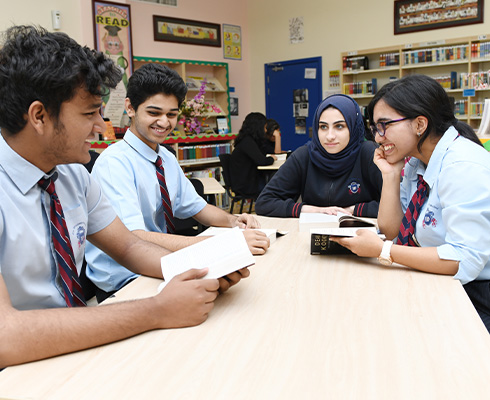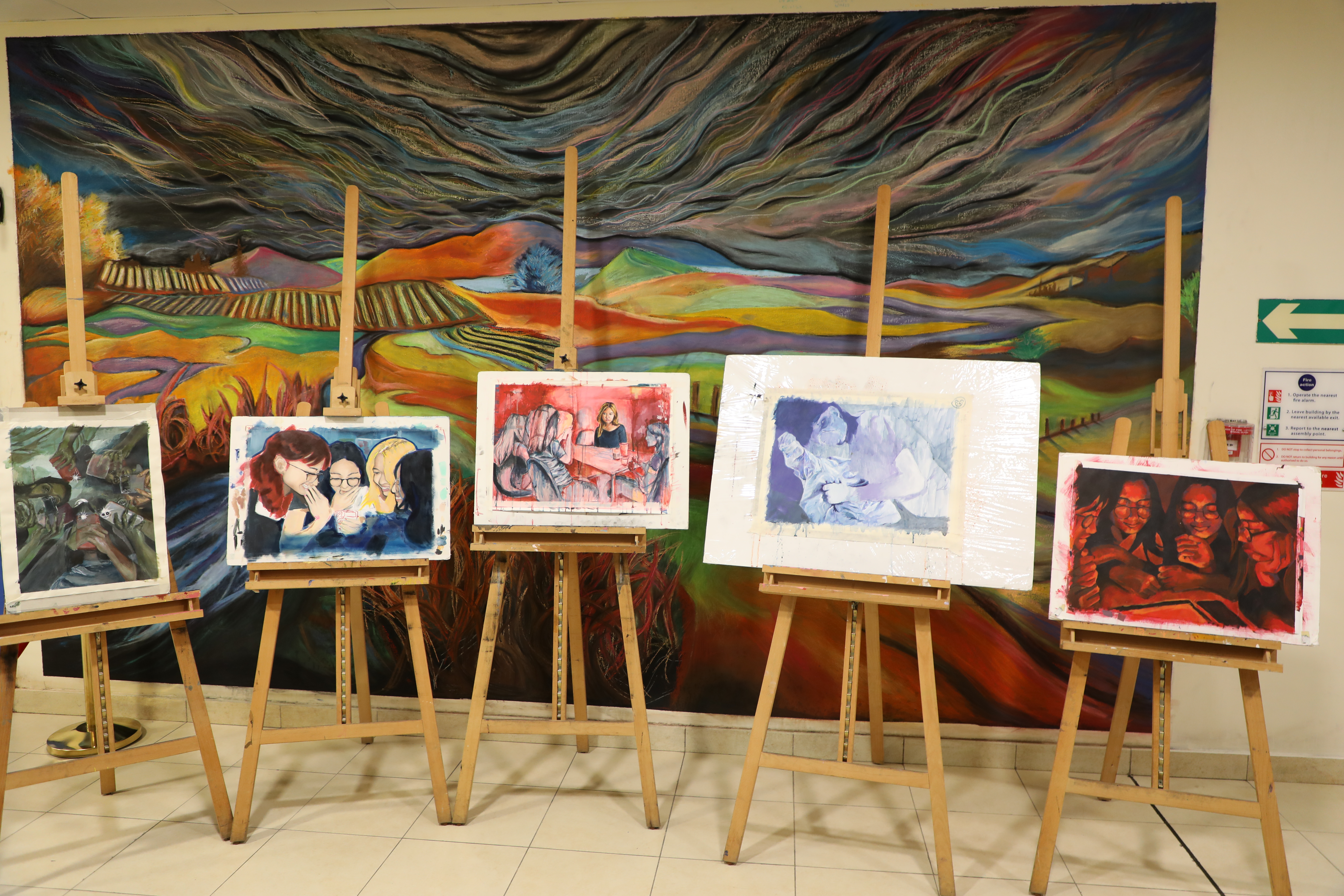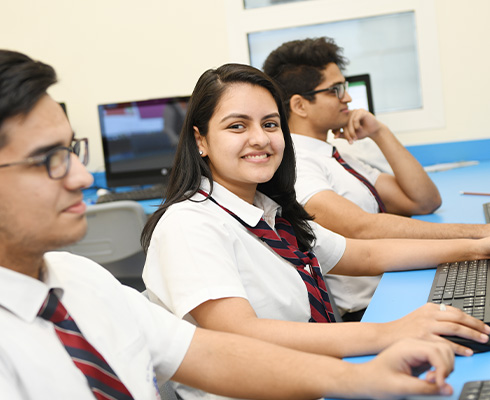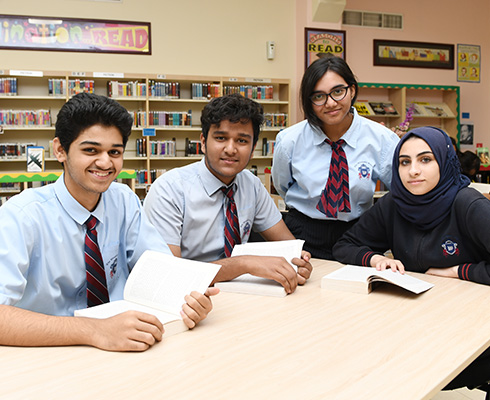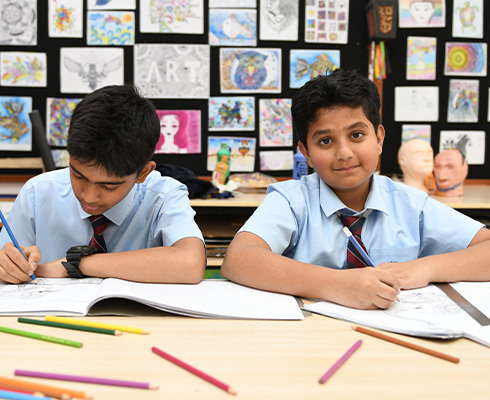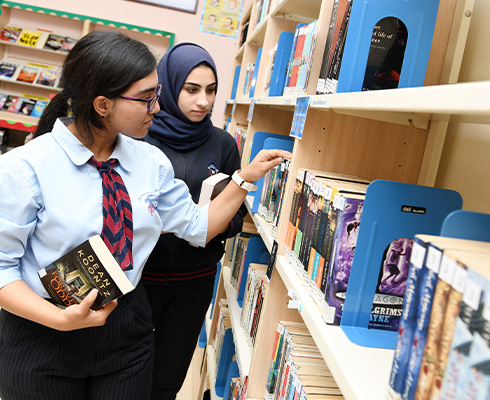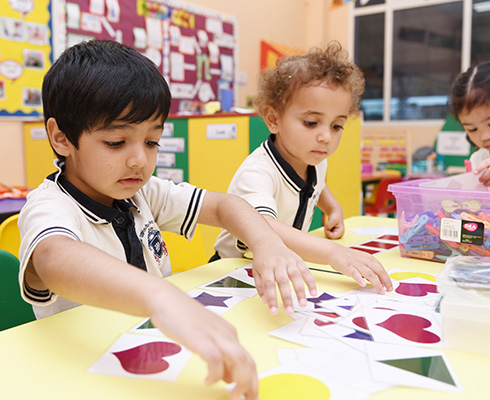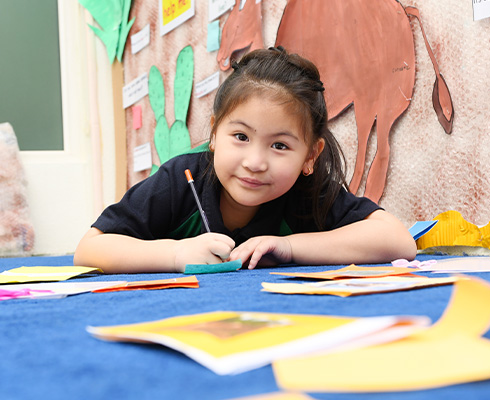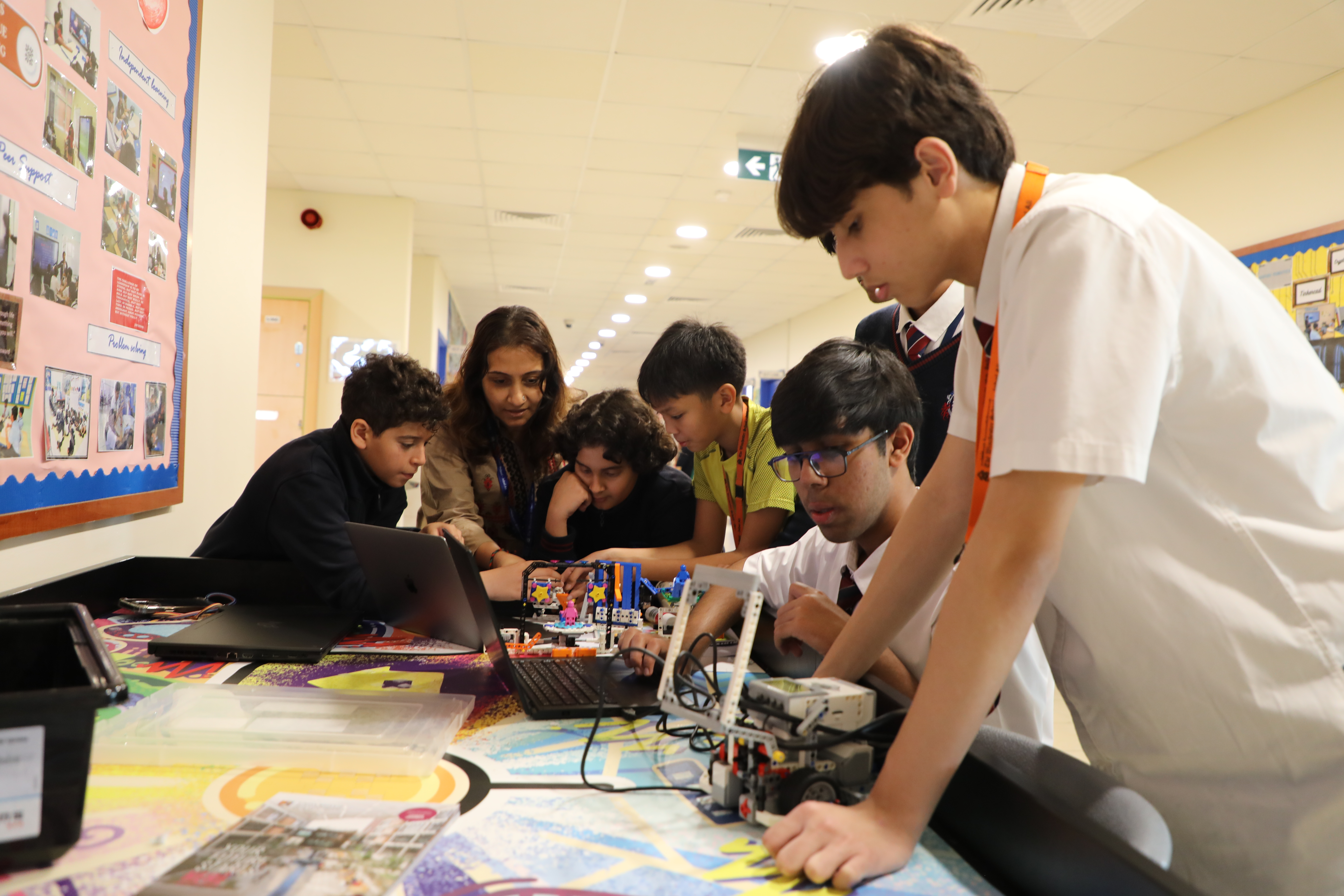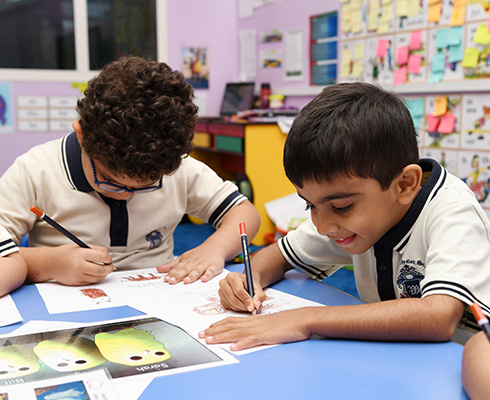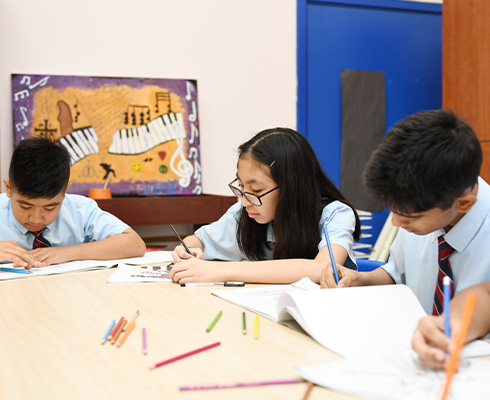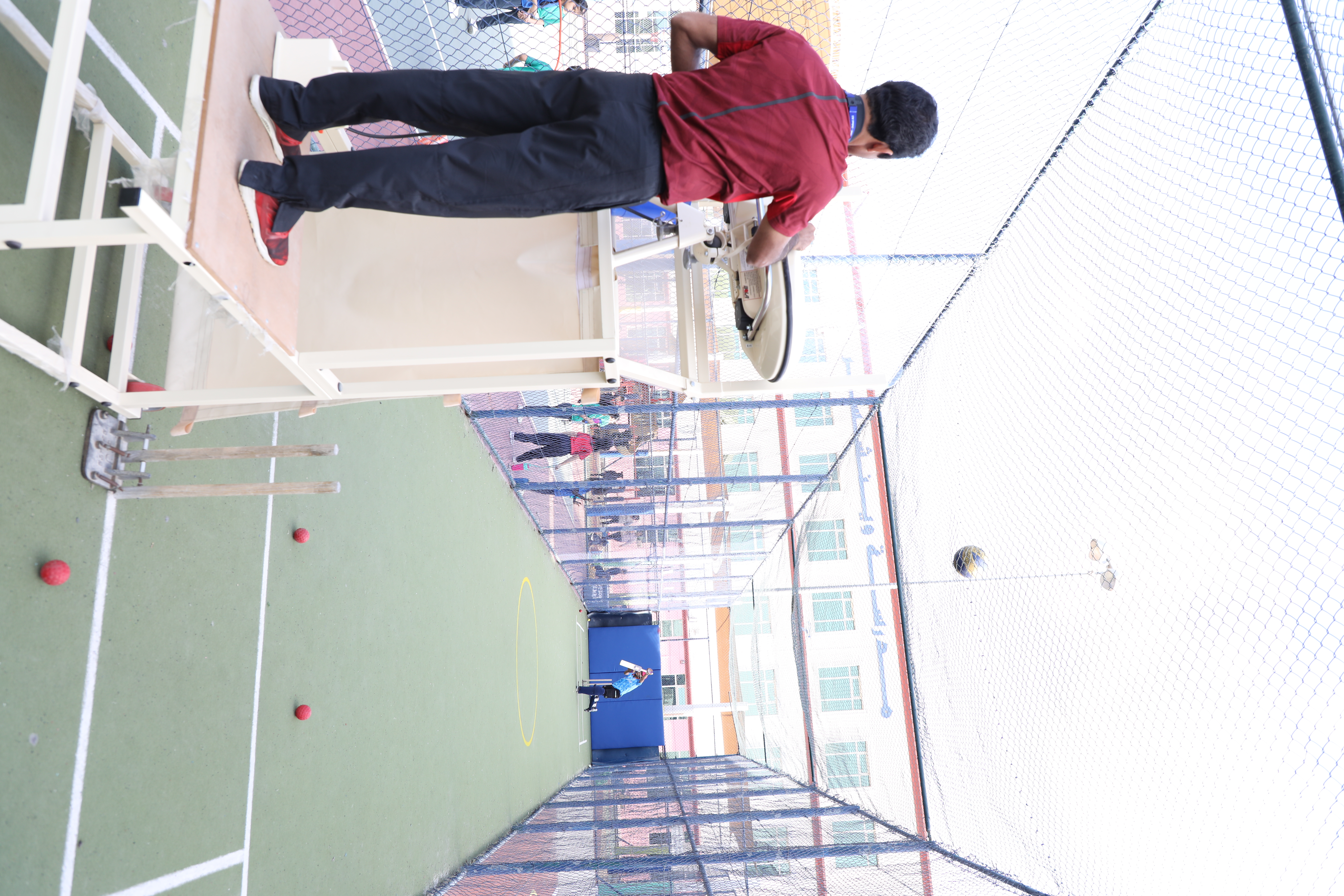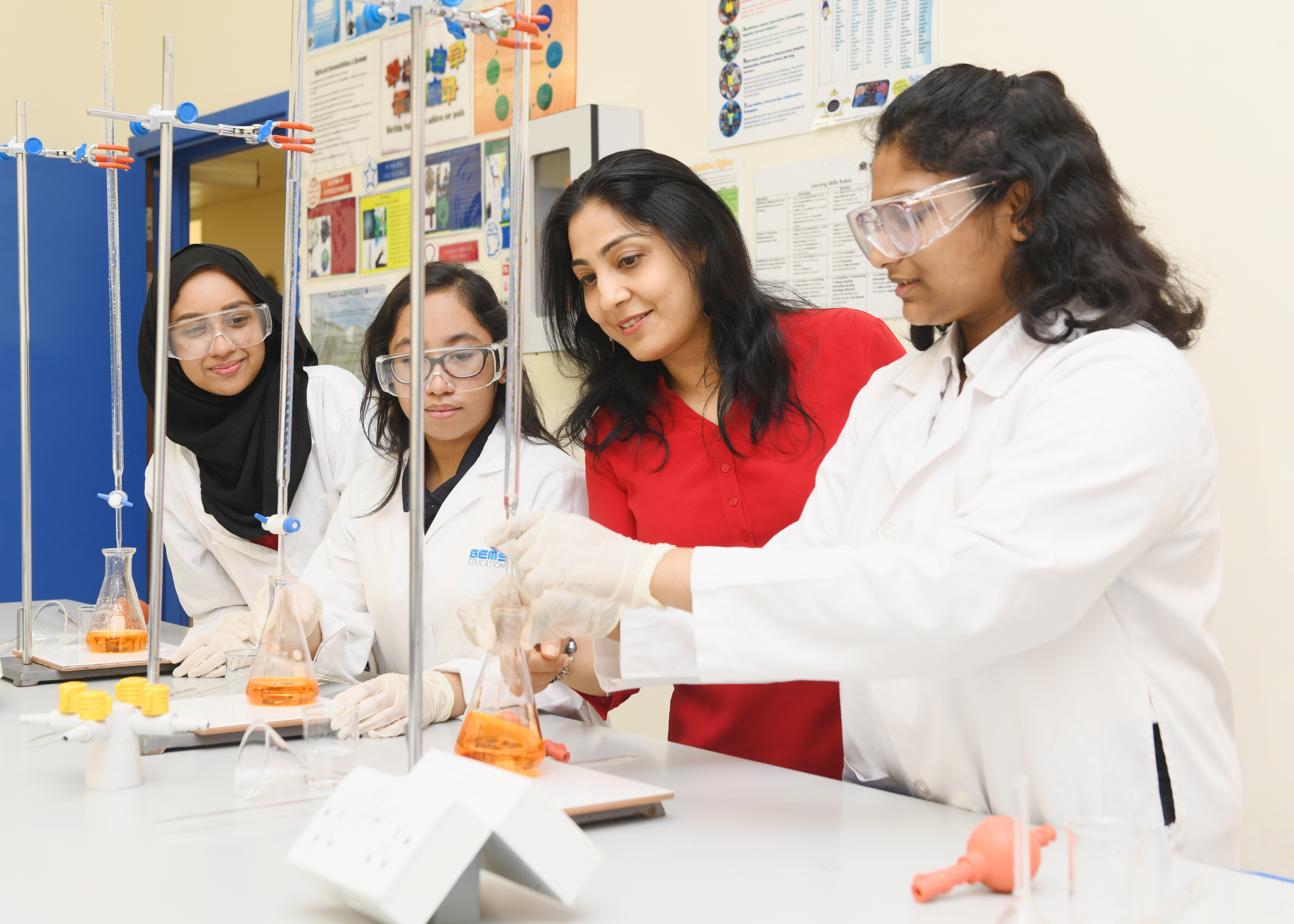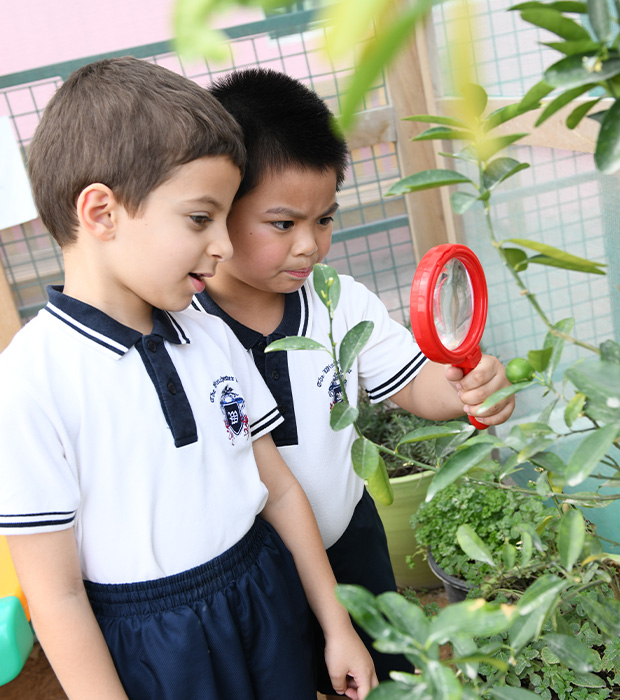
Science Department - Primary
Head of Department: Ms. Mandeep Kaur
Email ID: [email protected]
Department Philosophy
The Science Department follows a philosophy of instilling in our children, greater curiosity and understanding of natural phenomena. Our aim is to enable children to ask and answer scientific questions by carrying out investigations, testing ideas experimentally, developing practical skills, and using collaborative approaches to solve problems. Our special focus is to teach methods of inquiry and investigation, and stimulate creative thought and critical reasoning. Children learn to ask scientific questions, leading to a deeper understanding of the importance of science in everyday life.
Department Facilities / Resources
The Winchester school has well-equipped Science labs in the Primary. We have sufficient resources for all science teaching units. We keep them centrally, where there is a box of equipment for each unit of work. The library contains a good supply of science topic books and all teachers and students (FLN and Student planner) have a list of useful websites to support learning and research.
Key Points from Department Policy
In early years, science is an integral part of the learning, it is part of Knowledge and Understanding of the World. Their learning must be supported through offering opportunities for them to use a range of tools safely; real life situations, practical 'experiments'; and work with a range of materials.
Science curriculum planning is based on National Curriculum and QCA plans. The schemes have been adapted to the local environments. We plan topics so that they build upon prior learning.
In KS1 (Y1 Y2) and KS2 (Y3 – Y6) children will have access to the following programsof study laid down by the National Curriculum.
- SC1 scientific enquiry (which is taught throughout all other sections).
- SC2 life processes and living things
- SC3 materials and their properties
- SC4 physical processes
Cross curricular links with Science
Emphasizing links between subjects help children make sense of what they are learning. Cross curricular links are crucial to learning as learning depends on being able to make connections between prior knowledge and experiences and new information and experiences. Such connections help us make sense of our world and develop our capacity to learn.
Linking Science with other subjects in the curriculum provides opportunities to reinforce and extend learning, both in Science and in the other subjects. It helps to apply and embed skills and knowledge in meaningful and purposeful contexts.
L & T style
We encourage creative thinking and critical reasoning to explain and analyze scientific / natural phenomena, with proper emphasis on the relevance of science in everyday life, hence adding interest and motivation to the subject. Hands on activities and investigations are a regular feature of our lessons to help students apply their understanding of key scientific ideas and connect them to real life.
We use varied pedagogical techniques to cater to multiple intelligences in a classroom, to enable the students to develop knowledge and trans-disciplinary skills such as curiosity, research, thinking and communication through perseverance and collaborative science activities.
We encourage ICT in Science to support student’s independent learning and develop critical thinking through research based learning.
Assessment Procedure
Foundation Stage
This will take the form of ongoing formative assessment through observation of both indoor and outdoor activities. The tracker is used effectively to identify and plan the ELG (Early Learning Goal) from the seven areas of development.
KS1 and 2
AFL (Assessment for Learning) forms an important part of every lesson. Success criteria are shared with the students before the beginning of the unit. We assess children's work formatively through observations and marking. At the end of a unit of work, review is done , it may take the form of a practical activity, a concept map or a written assessment.
A Summative Assessment is done at the end of each term. Based on the Summative and Formative assessments student’s level of attainment are identified, new targets are set and shared with the students and parents. This helps us in tracking the student’s progress and attainment. We also use the gap analysis to inform planning for future lessons.
Extra-curricular Activities
- Field Trips Cross curricular activities
- Science Week projects
Useful Subject-specific websites
- kitchen science experiment website: http://www.designerappliances.com/articles/a-home-guide-to-kitchen-science-experiments/
- BBC Bitesize: http://www.bbc.co.uk/schools/ks2bitesize/science
- NGFL Resources for Science: http://www.ngfl-cymru.org.uk/eng/vtc-home/vtc-ks2-home/vtc-ks2-science%282%29
- PBS Science Activities (enrichment / advanced): http://pbskids.org/zoom/activities/sci/
- Scholastic's Magic School Bus Games and Activities: http://www.scholastic.com/magicschoolbus/games/index.htm
- Sheppard Software Games (Science games and activities for many ages): http://www.sheppardsoftware.com/
- Engineering Interact for Key Stage 2: http://www.engineeringinteract.org/
- National Geographic Kids Section-Games, Activities, Fun! http://kids.nationalgeographic.com/kids/
- Primary Science Games: http://www.primarygames.com/science.htm
- BP Educational Services, providing free curriculum-linked resources for primary and secondary: http://www.bp.com/retailhomepage.do?

